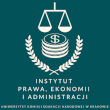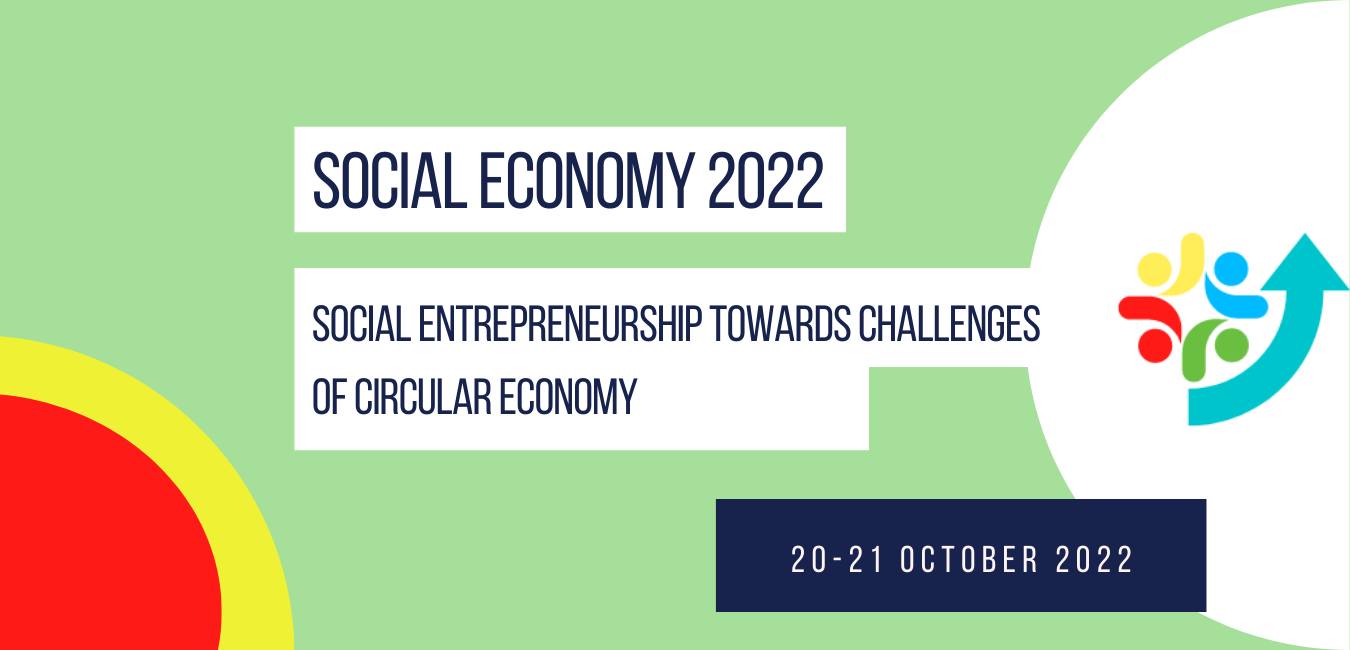
Ing.Lukáš Válek,Ph.D. -Prague University of Economics and Business
 Válek,Ph.D. -Prague University of Economics and Business
Válek,Ph.D. -Prague University of Economics and Business
Lukáš Válek Lukas works at the Department of Entrepreneurship, Faculty of Business Administration (FBA), Prague University of Economics and Business, Czech Republic where he teaches Social Entrepreneurship (previously at the Institute of Social Work of the University of Hradec Kralove, Czech Republic teaching Social Economy). His second role is matchmaking between scholars of FBA and international research project calls and calls for partnerships. He has background in economics and management, and for the past decade he was involved in non-profit sphere (merging non-profit and for-profit understanding of non-formal and informal learning). He holds PhD in Systems engineering (Soft systems) in field of Information and Knowledge management with focus on Complementary economic systems, especially Time Banks. Since 2010 he is also freelance lecturer and facilitator on both national and international levels for various organizations (non-profits). His research interest lies in non-mainstream economic systems, with focus on co-production and co-creation with latest research topic being co-production and co-creation in migration and entrepreneurship and migration. He has long experience in project management, and 2017- 2021 worked as Technology Scout in field of humanities.
Prof. Jason Papathanasiou, Ph.D. - University of Macedonia
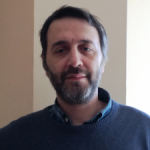 Prof. Jason Papathanasiou, Ph.D. - University of Macedonia
Prof. Jason Papathanasiou, Ph.D. - University of Macedonia
Jason Papathanasiou is an Associate Professor at the Department of Business Administration, University of Macedonia, Greece. He holds a PhD in Operational Research and a degree in Physics from the Aristotle University of Thessaloniki. He has worked for a number of years at various institutes and has organized and participated in many international scientific conferences and workshops. He has published papers in international scientific peer referred journals like the Environmental Monitoring and Assessment, Environmental Modelling & Software, Regional Studies, European Journal of Operational Research, PNAS, Fuzzy sets and Systems, Renewable and Sustainable Energy Reviews, and has edited or authored a number of books. He has coordinated, reviewed proposals and participated in many research projects inFP6, FP7, Horizon 2020, Erasmus+, Interreg and COST; he was also a member of the TDP Panel of COST. Heis a member of the coordination board of the Euro Working Group on Decision Support Systems. His research interests include Decision Support Systems, Operational Research and Multicriteria Decision Making.
Objectives and topics of the conference
Objectives of the conference
The negative consequences of climate change and the growing problem of resource renewability, as well as the desire to ensure socio-economic development, make it necessary to rethink existing paradigms, especially in economics. It is necessary to place greater emphasis on creating appropriate conditions for socio-economic development and ensuring appropriate environmental quality. An important element of implementing the assumptions of sustainable development is the circular economy (CE).
So far, analyses and activities have focused on the role of private entities in the implementation of CE, however, the necessity to include all economic actors in the process of creating closed cycles is more and more often emphasised. It seems crucial to emphasise the role of not only large, private players, but also entities whose core activity is social impact. In this respect, social economy entities may constitute an important element in implementing a closed loop economy, particularly emphasising the social element and including marginalised groups in the concern for a better tomorrow. These actors, including cooperatives, social enterprises, non-profit organisations, provide work for more than 13.6 million people in Europe, increasingly becoming key actors in the economy. In the context of the CE, the role of so-called "green social enterprises" is significant. In order to make fully exploit the potential of social enterprises in this direction, it is necessary to support their potential, provide them with comprehensive assistance and overcome the obstacles they may face.
The international scientific conference "Social Economy 2022. Social Entrepreneurship towards the challenges of a Circular Economy" is the next edition of the conference organised annually by the Department of Economics and Economic Policy and the Department of Entrepreneurship and Social Innovation of the Pedagogical University of Krakow in cooperation with national and foreign scientific institutions. The conference aims to:
- discuss and analyse contemporary theoretical and empirical issues relating to the social economy and social entrepreneurship, especially in relation to their role in the circular economy;
- disseminate research results and share thoughts with other professionals on the latest trends, concepts, challenges and dilemmas in relation to social entrepreneurship, including e.g. theories and models of sustainable social entrepreneurship, the impact of social entrepreneurship on the idea of a circular economy, endogenous and exogenous conditions for the development of green social entrepreneurship, practical solutions adopted in social entrepreneurship;
- exchange of knowledge and experience between conference participants: academics, practitioners, social entrepreneurs, representatives of local communities and government authorities, people starting their scientific careers, PhD students, student scientific circles.
Conference topics:
- Social economy and social entrepreneurship versus the circular economy,
- Social entrepreneurship as a route to environmental change and a driver of the circular economy,
- Involvement of social economy entities to reduce the negative effects of climate change,
- Endogenous (internal) and exogenous (external) conditions for the development of a closed loop economy and sustainable social entrepreneurship,
- Innovations, including green ones, in social entrepreneurship,
- Social entrepreneur - leader of change,
- Ethics and social responsibility of business and social entrepreneurship,
- Financing green initiatives in social enterprises,
- Green specialisations of social enterprises,
- Cooperation of social enterprises with other entities for the implementation of the idea of a closed loop economy,
- Supporting so-called green skills among employees and volunteers of social economy entities,
- Information and communication technologies (ICT) in the activities of social enterprises,
- Key success factors for social enterprises.
Conference language:
English and Polish
Organizing committee
Organizing committee
Chairwomen of the Organizing Committee:
dr Katarzyna Kowalska, PhD & dr Elżbieta Szczygieł, PhD, Pedagogical University of Krakow
dr Marta Czyżewska, PhD, Pedagogical University of Krakow
dr Iwona Lupa-Wójcik, PhD, Pedagogical University of Krakow
dr Wojciech Maciejewski, PhD, Pedagogical University of Krakow
dr Paweł Nowak, PhD, Pedagogical University of Krakow
dr Ewa Radomska, PhD, Pedagogical University of Krakow
dr Krzysztof Sala, PhD, Pedagogical University of Krakow
dr Renata Śliwa, PhD, Pedagogical University of Krakow
dr Paulina Szyja, PhD, Pedagogical University of Krakow
dr inż. Paulina Bełch, PhD, BEng, Rzeszow University of Technology
dr Katarzyna Chudy-Laskowska, PhD, Rzeszow University of Technology
dr Marzena Hajduk-Stelmachowicz, PhD, Rzeszow University of Technology
Scientific Council
Chairwomen of the Scientific Council:
Prof. UP dr hab. Janina Pach, DSc, PhD & Prof. UP, dr hab. Dorota Murzyn, DSc, PhD, Pedagogical University of Krakow, Poland
- Prof. dr hab. Marian Kozaczka, DSc, PhD, Pedagogical University of Krakow, Krakow, Poland
- Prof. dr hab. Andrzej Graczyk, DSc, PhD, Wroclaw University of Economics, Wroclaw, Poland
- Prof. dr hab. Yuriy Bilan, DSc, PhD, Tomas Bata University in Zlín, Zlín, Czech Republic
- Prof. dr Jason Papathanasiou, University of Macedonia, Thessaloniki, Greece
- Prof. dr hab. Krystyna Przybylska, DSc, PhD, emeritus professor of Krakow University of Economics, Krakow, Poland
- Prof. dr hab. Iga Rudawska, DSc, PhD, University of Szczecin, Szczecin, Poland
- Dr hab. prof. PRz, Krystyna Kmiotek, DSc, PhD, Rzeszow University of Technology, Rzeszow, Poland
- Dr hab. prof. PRz, Teresa Piecuch, DSc, PhD, Rzeszow University of Technology, Rzeszow, Poland
- Dr hab. prof. PRz, Grzegorz Zamoyski, DSc, PhD, Rzeszow University of Technology, Rzeszow, Poland
- Dr hab. prof. UR, Barbara Fura, DSc, PhD, Uniwersity of Rzeszow, Rzeszow, Poland
- Dr hab. inż., prof. PO Marcin Łuszczyk, DSc, PhD Opole University of Technology, Opole, Poland
- Dr inż. Lukáš Válek, Prague University of Economics and Business, Prague, Czech Republic
- Dr hab. prof US, Barbara Kryk, DSc, PhD, University of Szczecin, Szczecin, Poland
- Dr hab. Agnieszka Hess, DSc, PhD, Jagiellonian University, Krakow, Poland
- Dr. Thomas Gold, New York University, New York, USA
Important dates
IMPORTANT DATES
- 3 October 2022 – registration and submission of abstracts (on-line registration form)
- 7 October2022 – information on the acceptance of the abstract
- 12 October 2022 – submission of the article (espoleczna@up.krakow.pl)
- 12 October 2022 – payment of the conference fee (publication of the text in a peer-reviewed monograph)
- 17 October 2022 – publication of the conference program
REGISTRATION, SUBMISSION GUIDELINES & PUBLICATIONS
Registration
Registration and submission of abstracts: online registration form
Submission Guidelines
The submitted articles will be published in:
- a chapter in a scientific monograph from the Ministry of Education and Science list (120 points per monograph)
- scientific journals (the topics of the articles must be in line with the profile and scope of the chosen journal and comply with its editorial requirements):
 Social Entrepreneurship Review (former: Ekonomia Społeczna), ISSN: 2081-321X, eISSN: 1898-7435, the MEiN list (Poland): 40 points,
Social Entrepreneurship Review (former: Ekonomia Społeczna), ISSN: 2081-321X, eISSN: 1898-7435, the MEiN list (Poland): 40 points,
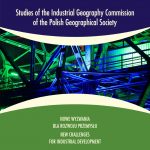 Prace Komisji Geografii Przemysłu Polskiego Towarzystwa Geograficznego (Studies of the Industrial Geography Commission of the Polish Geographical Society), ISSN: 2080-1653, eISSN: 2449-903X, the MEiN list (Poland): 40 points,
Prace Komisji Geografii Przemysłu Polskiego Towarzystwa Geograficznego (Studies of the Industrial Geography Commission of the Polish Geographical Society), ISSN: 2080-1653, eISSN: 2449-903X, the MEiN list (Poland): 40 points,
 Przedsiębiorczość – Edukacja (Entrepreneurship – Education), ISSN: 2083-3296, eISSN: 2449-9048, the MEiN list (Poland): 40 points,
Przedsiębiorczość – Edukacja (Entrepreneurship – Education), ISSN: 2083-3296, eISSN: 2449-9048, the MEiN list (Poland): 40 points,
Fee & payment details
Participation in the conference is free of charge:
- Passive participation
- Active participation (with oral presentation)
Cost of publication of the scientific text:
- 0 PLN - fee for the publication of a scientific article in one from scientific journals
- 200 PLN (45 EUR) - fee for the publication of the text in a peer-reviewed monograph (due date: 5 October 2022)
Account number in EUR: PEKAO S.A. IBAN PL 78 1240 4722 1978 0000 4851 6422, SWIFT: PKOPPLPW
Account number in PLN: PEKAO S.A. 71 1240 4722 1111 0000 4852 4687
In the title of the bank transfer, please give your name and surname with the note: DK504
Contact
Email: espoleczna@up.krakow.pl
PEDAGOGICAL UNIVERSITY OF CRACOW
INSTITUTE OF LAW AND ECONOMICS
ul. Podchorążych 2,
30-084 Cracow
Poland
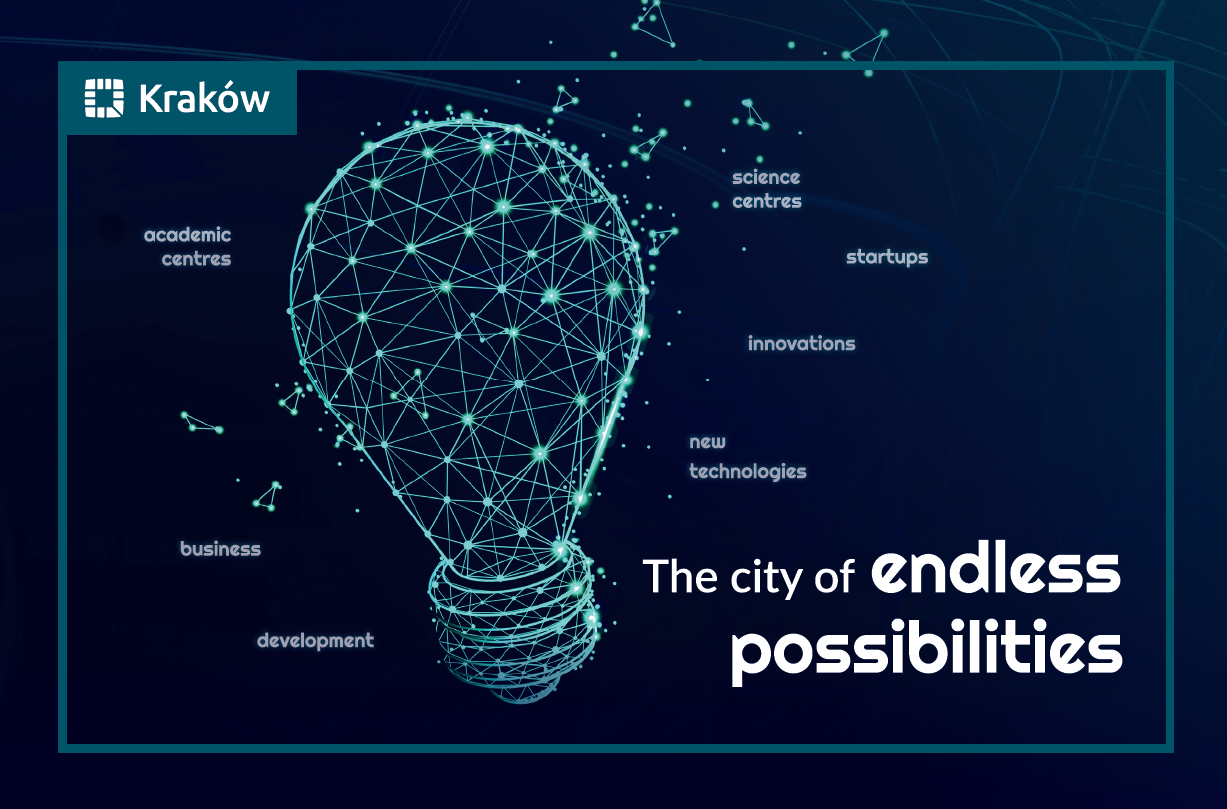
About Krakow - Conference venue
Due to its demographic, economic, social and scientific-cultural strength – ranks second in Poland among cities. It has unique values that are the basis of its economic development and an increase in the quality of life. It has high-quality human capital at its disposal. It is a city people consciously choose as a place to live, work, study, spend free time in a variety of ways. Sustainable development and the ability to meet specific challenges with the skillful use of own resources are the main priorities.
The academic center, with its 650 year old University , is permanently connected with the city and builds an unrepeated resource of knowledge in a unique way. It is the key to competitiveness and innovation not only of Krakow, but also of the entire region. The intensively developing economy based on knowledge is a completely new process in the economic life of the City, which makes it part of the modern economies of the world.
The overriding goal for Krakow is not only to be a modern city but also to be proud of its historical heritage. It aspires to be an open, rich, friendly and safe metropolis, vibrant with culture. Smart management and strengthening the sphere of modern services and the research and development sector are the foundations for the development of Krakow - a city where innovation and effective cooperation between science and business are the focus.
We invite you to visit our website and learn about the possibilities offered by magical Krakow - rooted in tradition, sensitive to everyday life and open to development: https://business.krakow.pl/.
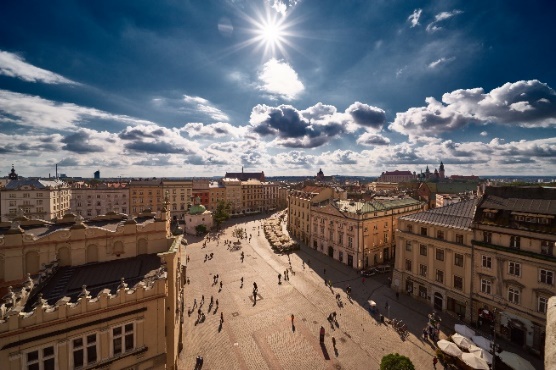
Fot. Piotr Krochmal

Fot. Piotr Krochmal
Video about the city of Krakow
Brochure about the city of Krakow


Organizers

Partners

